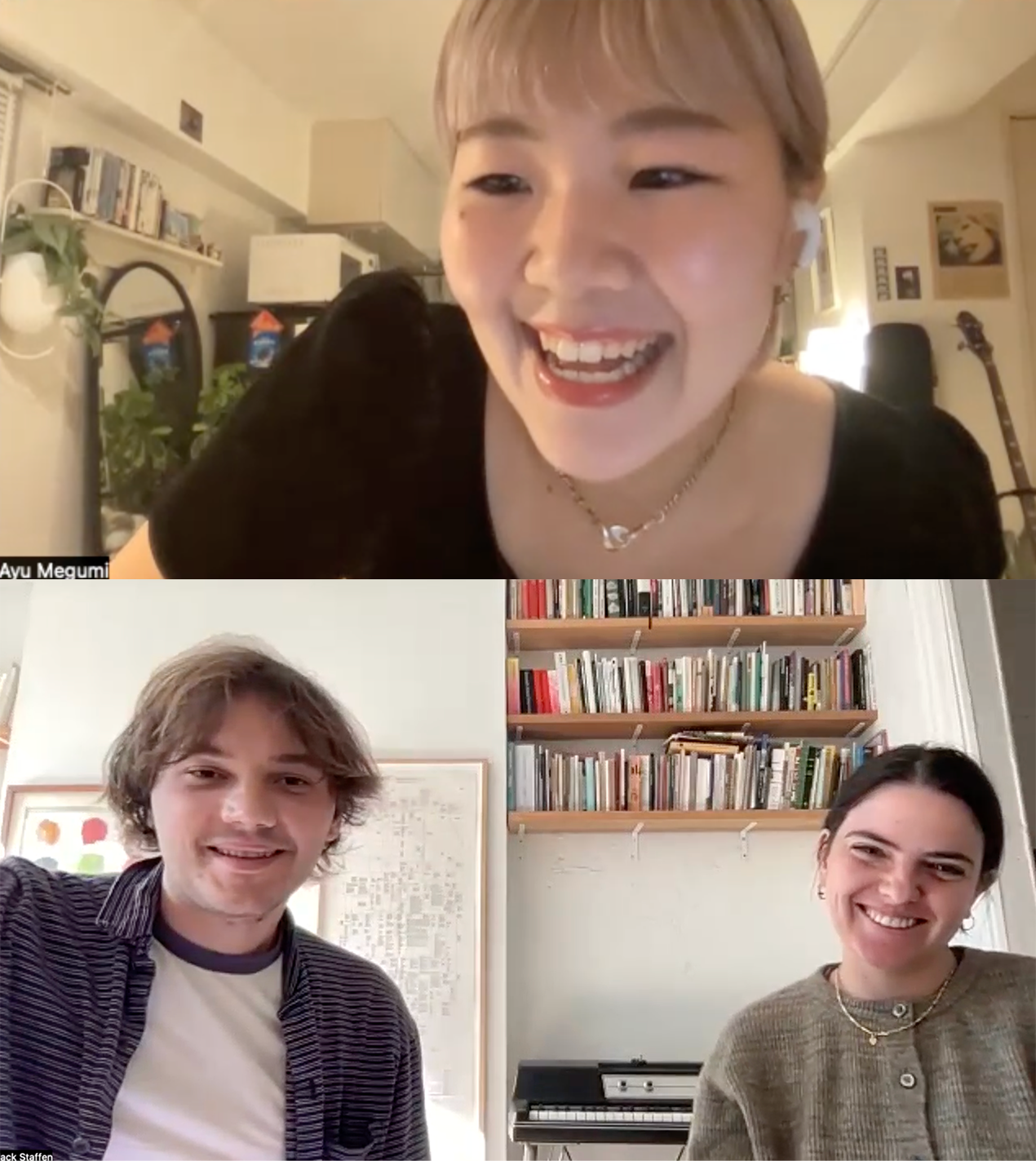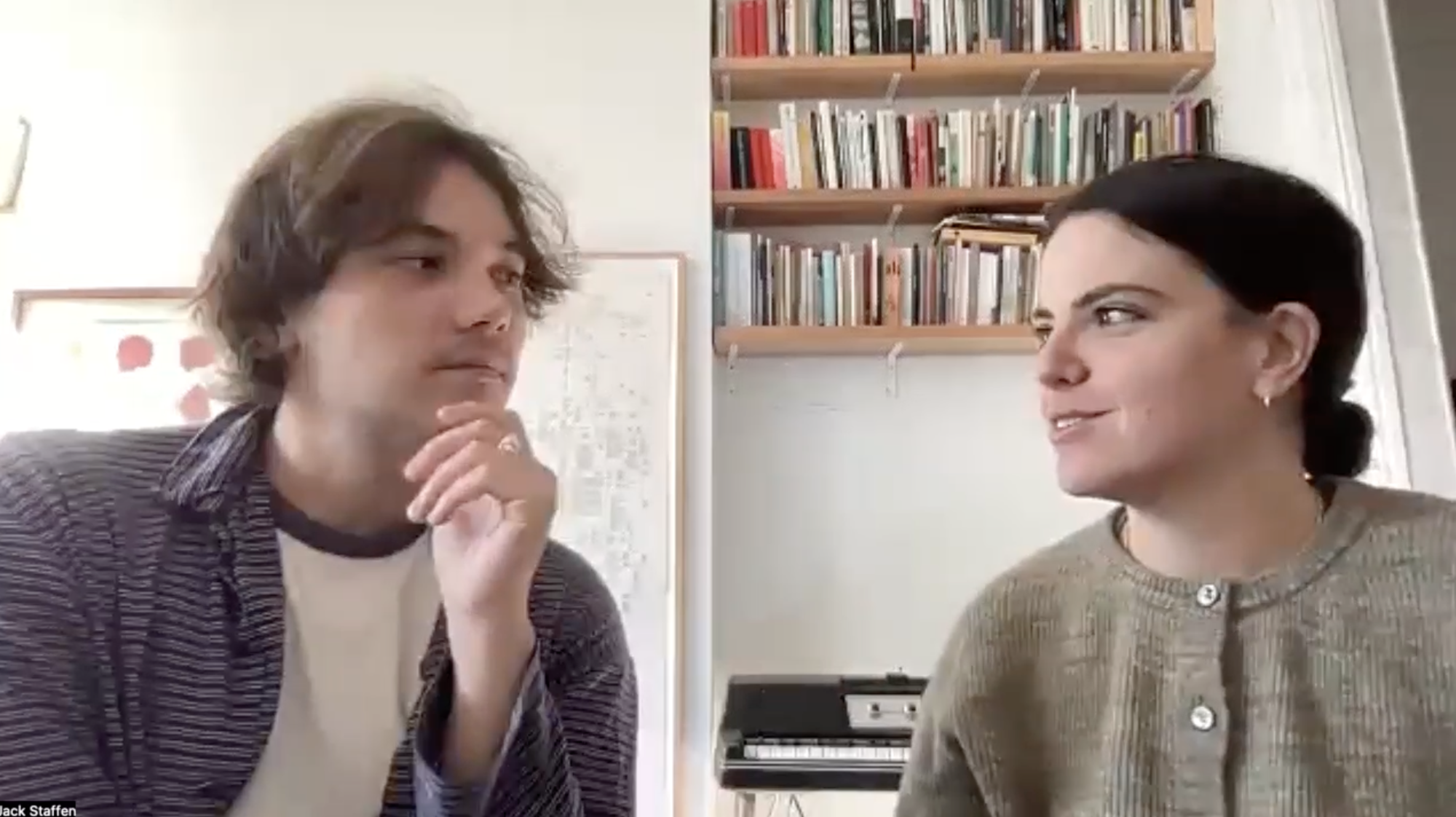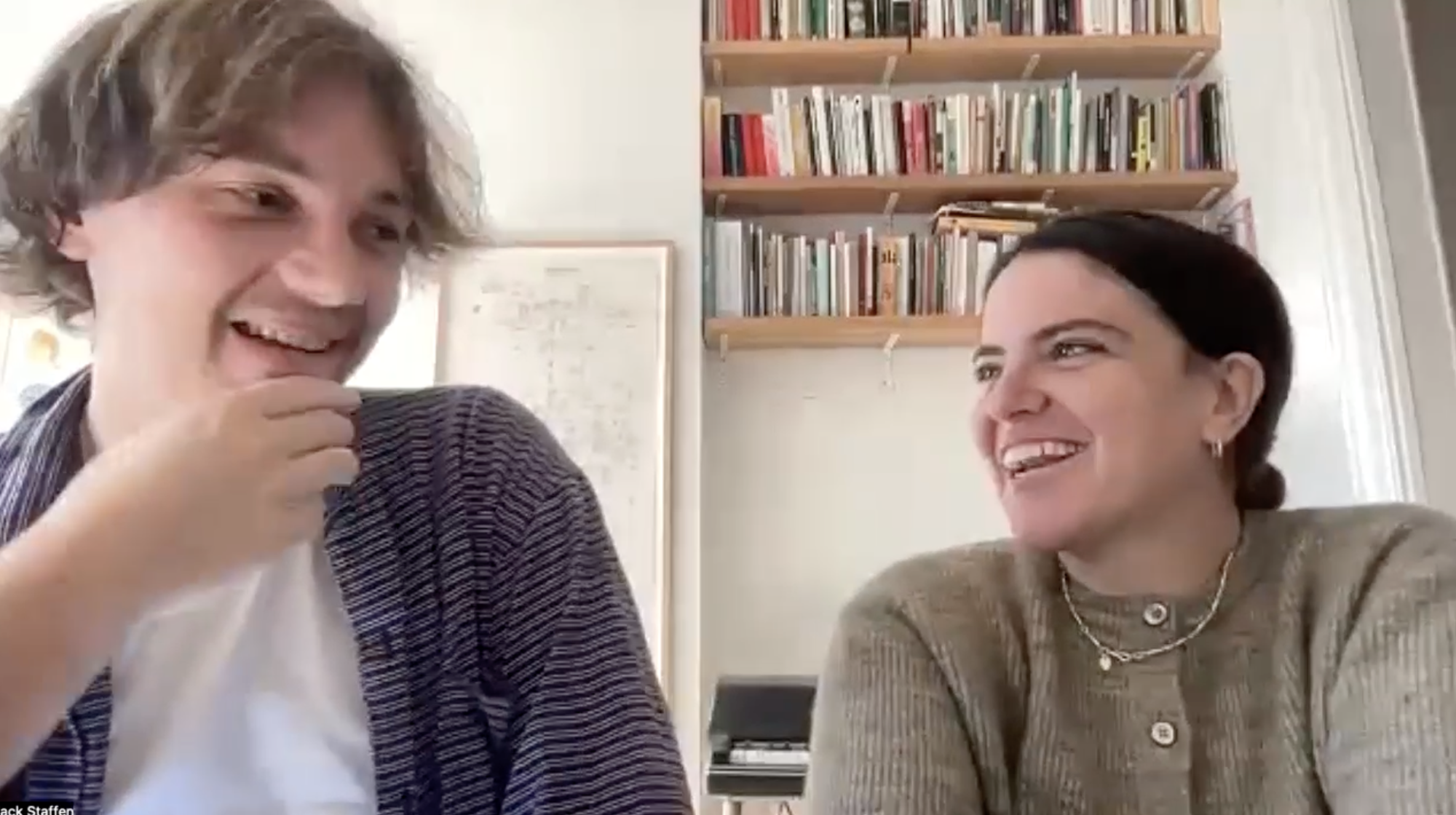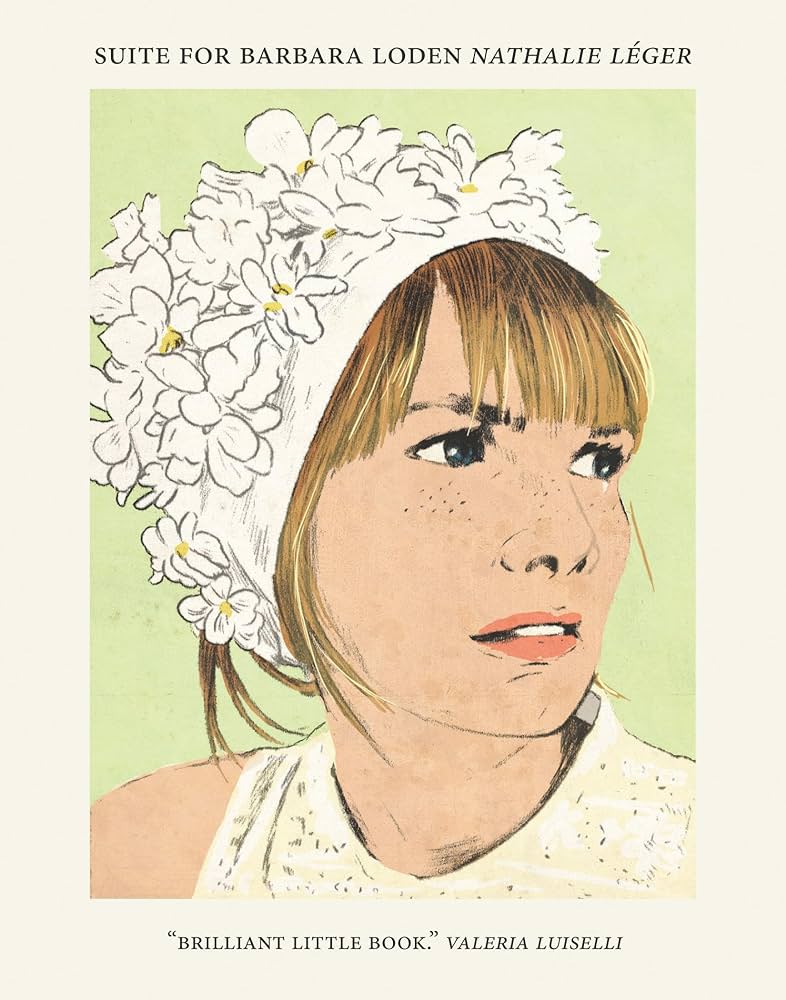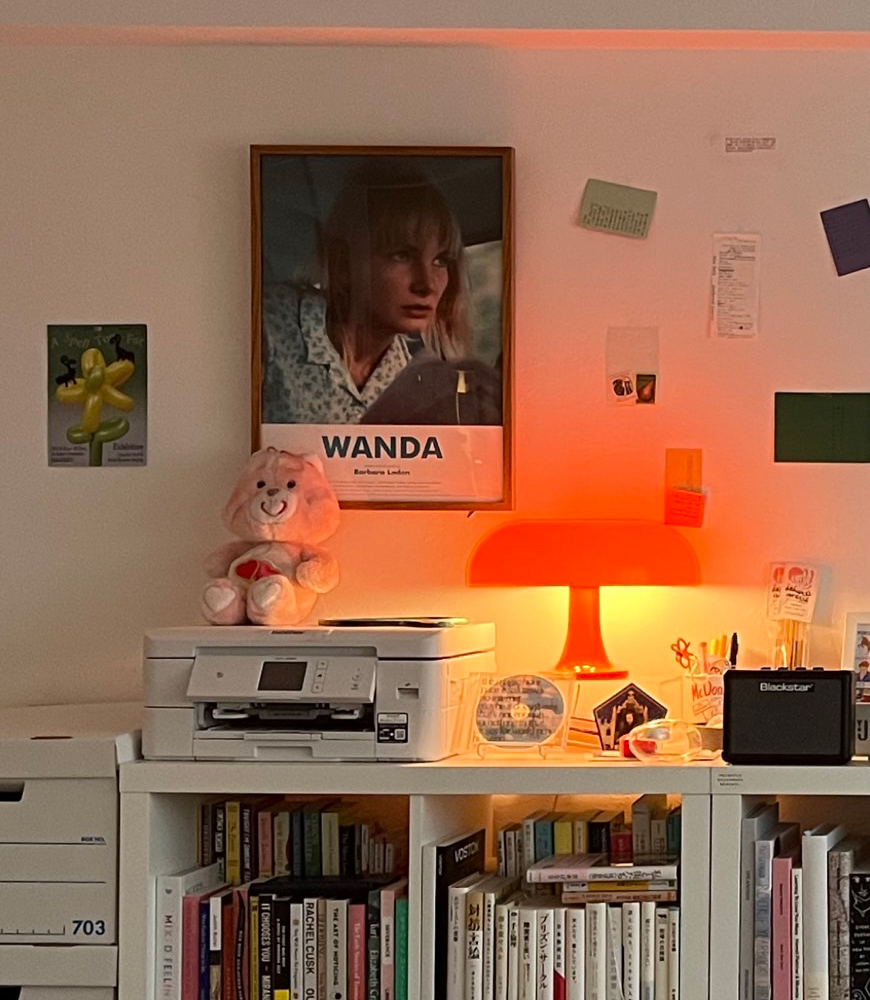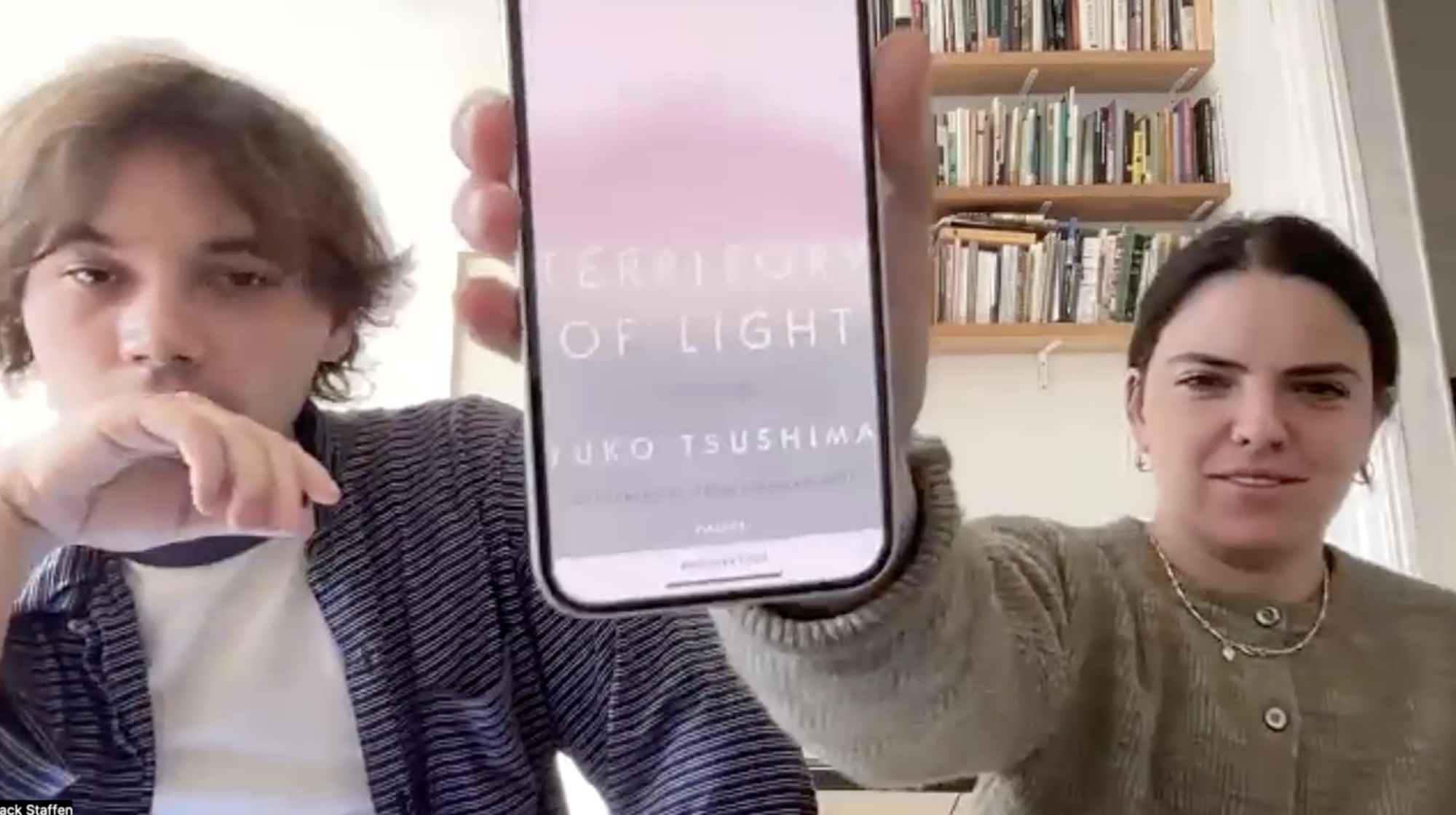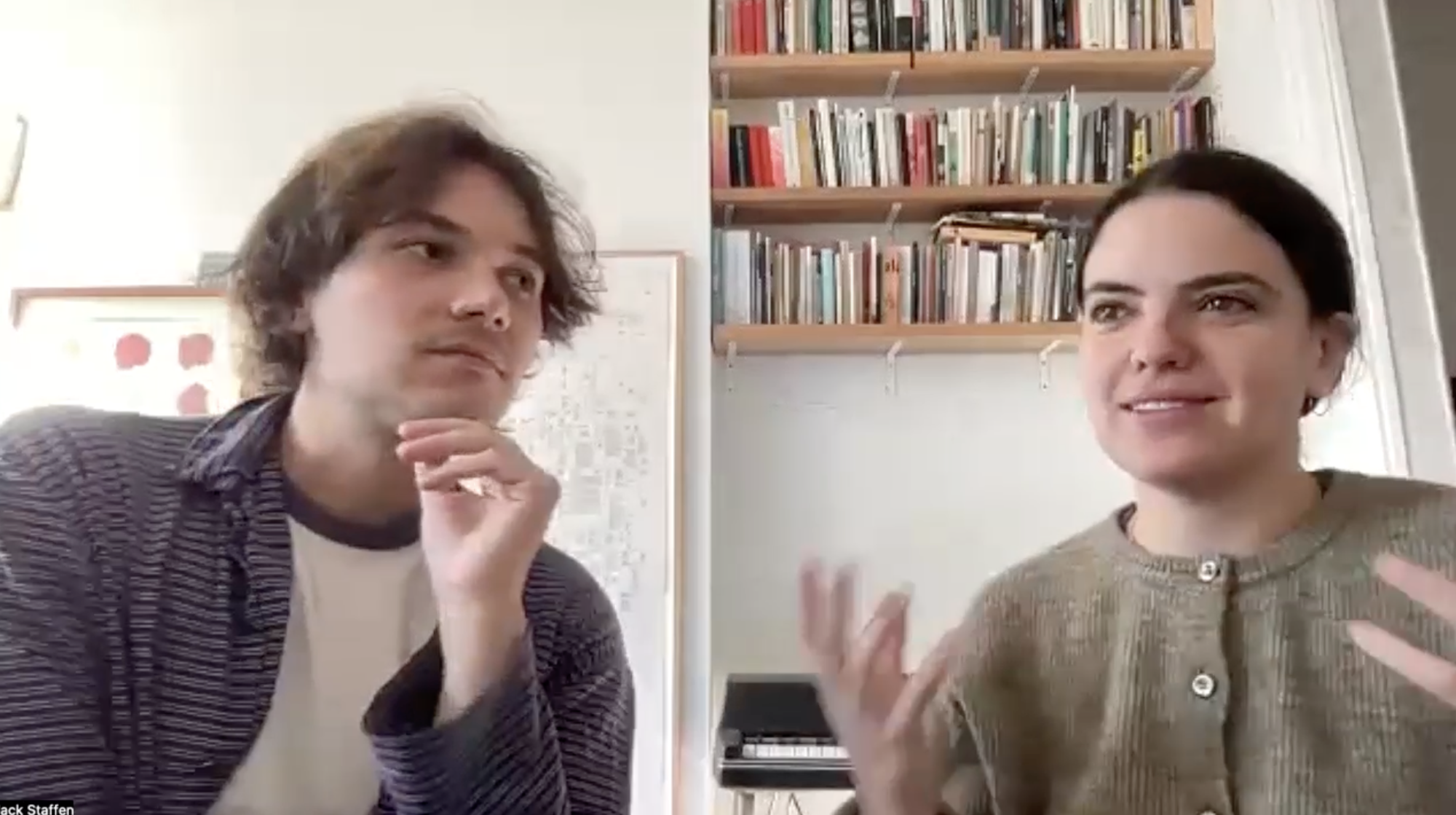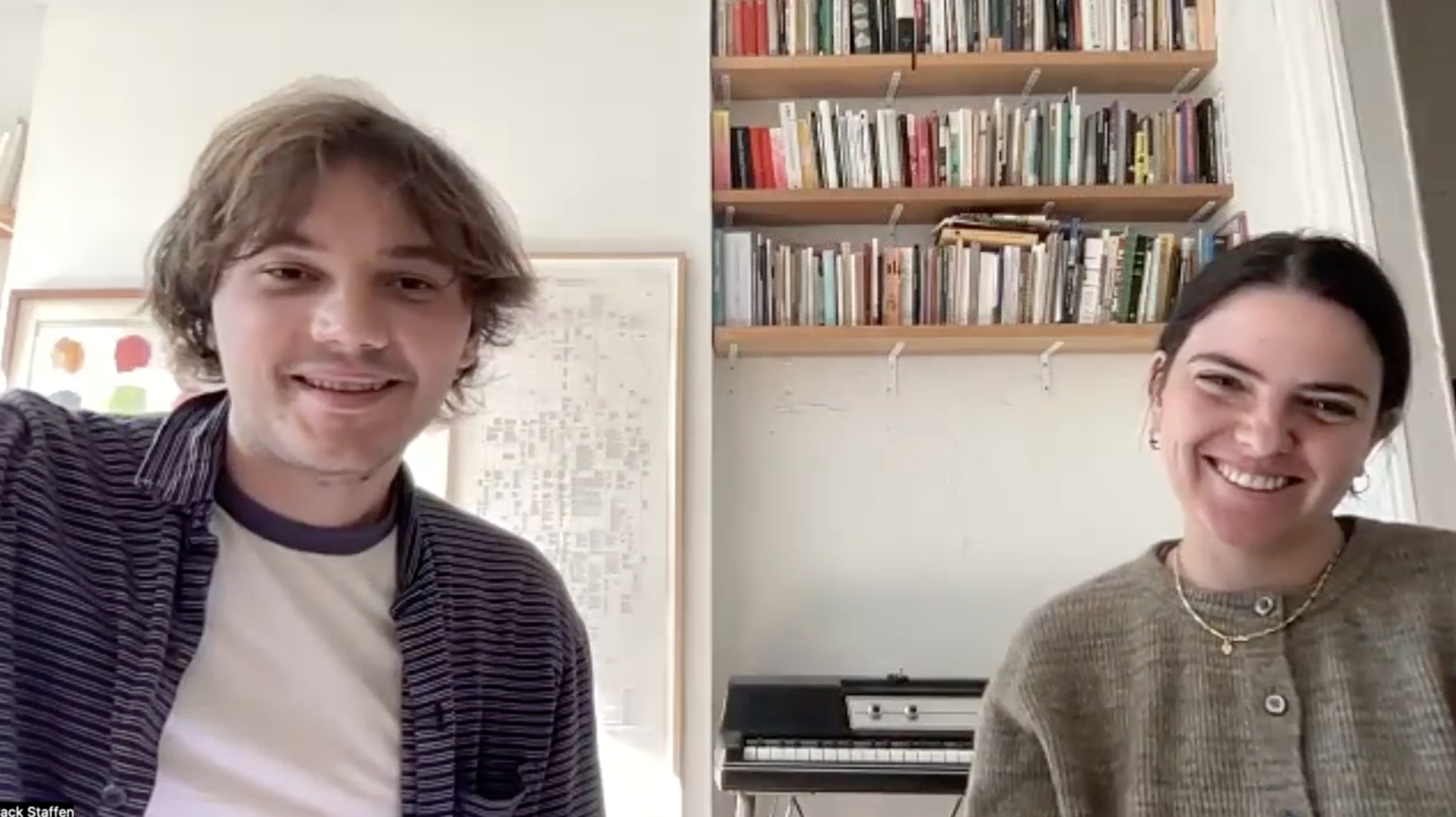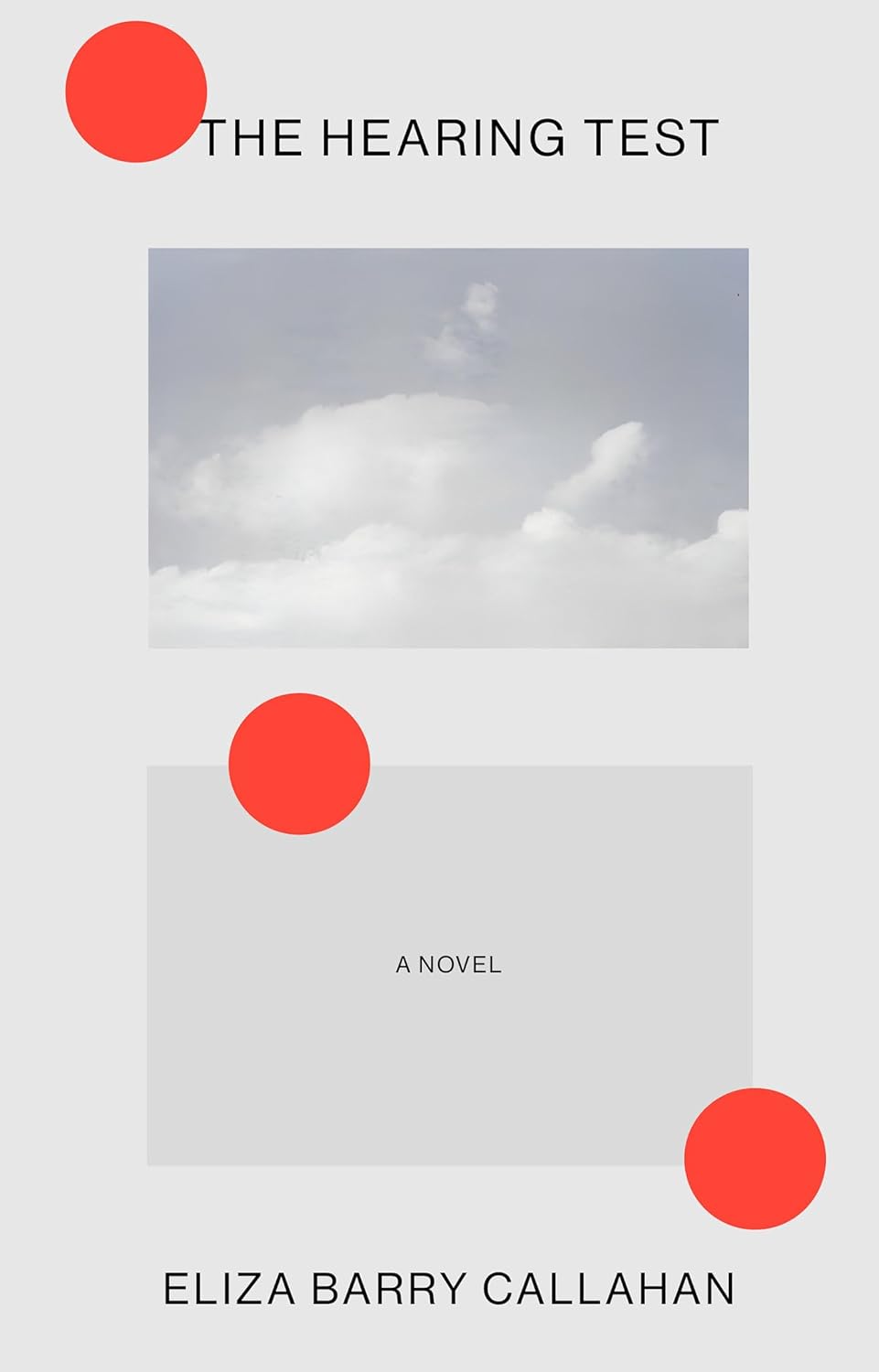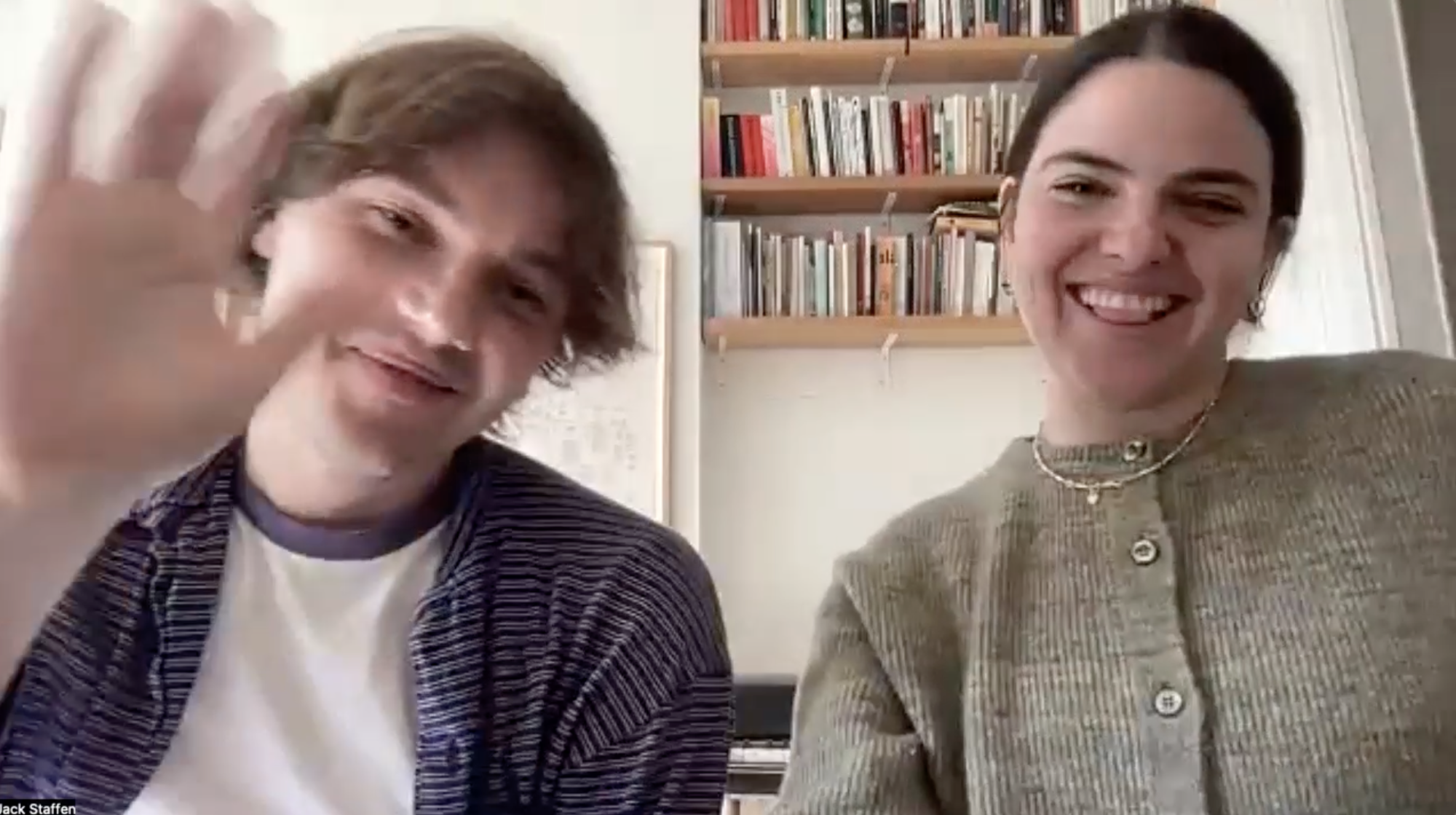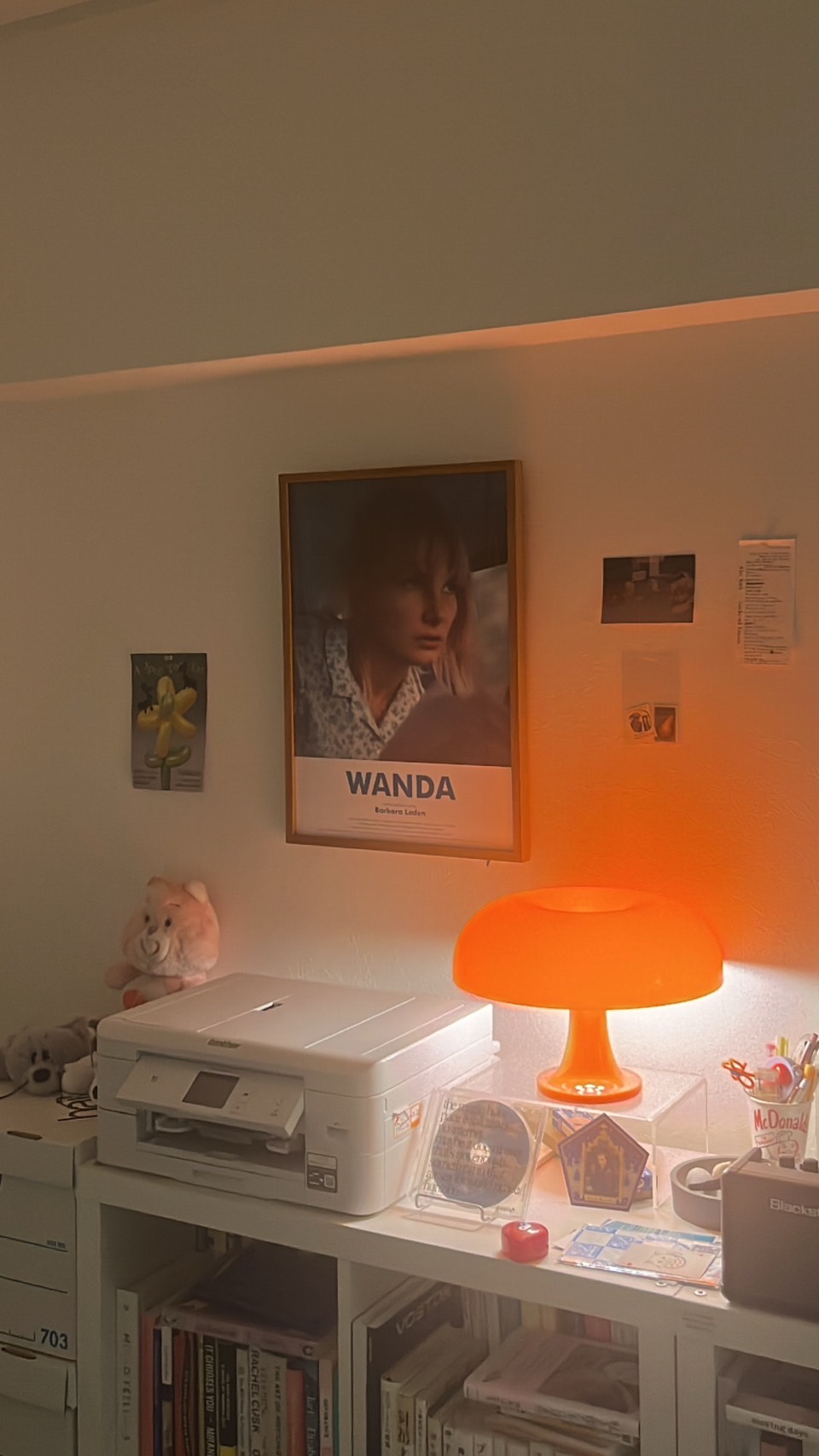Ayu: Hm, hm.
Jack: You might not necessarily be sitting down with your friends at dinner and being like, oh, I’m so sad because of this and this and that. But on stage, it’s so easy to do that.
Ayu: Yeah, there’s a possibility of who you can be on stage. For me, there is definitely a longing for connections in performing or making songs. There’s a desire to feel the presence of others or feel the presence of myself.
Eliza: Yeah, I think it’s like the desire to be known better. Not just to…
Ayu: Known better, yeah.
Eliza: You know, like, the idea that love in its deepest form is to be known, to be witnessed, you know?
Ayu: Hmm. Oh, be witnessed. Yes…
Eliza: On some deeper level. And I think maybe artists, people who make things in general, that desire is maybe greater in some way than others – what drives them to make things, is a desire to be known. Maybe everyone has that desire, it’s a universal desire, but I think an artist, the thing that can drive people to make is that desire, maybe burns a little brighter. It’s “a little”, it’s “more”, it’s not larger, but it maybe is just more pressing.
Jack: Yeah.
Ayu: Mm, mm, mm, mm. Yeah, and when I’m singing, I feel kind of free. And for some reason, when I think of my, like, primal self, I picture myself floating on my back in the water, relaxed, and not knowing which direction I am facing, but somehow at ease. And I sometimes get that feeling when I’m singing. And that’s very liberating for me.
Eliza: Yeah, different access – you tap into something that’s beyond just the kind of plane of our daily life and you can go somewhere else and then when you return, you have a better sense of what it is to be on this plane.
Jack: Yeah. I think like, I don’t know if you also feel this, but I always find that after a show is the best mindset or mental state ever, and that lasts really good night. There is something so cathartic about it. So much like, you’re just releasing all this energy on stage and it just feels so good.
And plus there’s the whole adrenaline rush too of it. But really I feel so good after the show.
